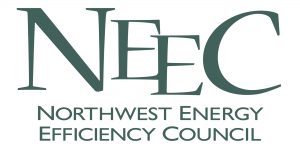The Washington State Legislature turned an important corner in the 2015 session requiring all bills to have passed their body of origin in order to receive further consideration. A notable casualty to this deadline was HB 1278 which established enforcement provisions to the state’s 2009 energy benchmarking and disclosure requirement. The bill would have amended the state size threshold for disclosure (from 10K sf to 20K sf) – thereby relieving approximately 35,000 buildings across the state from these requirements – by requiring covered buildings to share their completed Portfolio Manager accounts with the state and instituting a financial penalty for those who didn’t. HB 1278 would have also instituted full public disclosure by making that information open and available. The bill did pass out of two House committees but never made it to the House floor over objections from a number of stakeholders including the real estate industry. NEEC considered this a high priority bill and is disappointed in this lack of progress. The idea continues to have merit, however, and NEEC intends to continue conversation with other stakeholders for ideas on making this successful in the 2016 session.
The state’s capital budget will likely begin its legislative journey by the end of this month. Typically, either the House or Senate begins the process by issuing a capital budget proposal which sets the stage for a negotiation with the other chamber. NEEC continues to press for a strong commitment to the energy efficiency in public buildings grant program which has had significant success in the last five years.
NEEC also recently offered testimony recommending amendments to SHB 1896. This bill covers utility bill data privacy and passed the House with bipartisan support. Working with the bill’s House sponsor, Rep. Smith, NEEC and other stakeholders expressed concern that the bill language could have the effect of damaging the City of Seattle’s energy benchmark and disclosure ordinance. In addition, the bill could have disrupted a utility’s ability to work with third party contractors, including energy efficiency evaluation, measurement, and verification experts, for sharing energy bill data pursuant to the utility’s normal business operations. Amendments to address these concerns are now being considered and offered in the Senate’s deliberation of the legislation.
One of the hottest topics in this year’s Legislature is the issue of carbon reductions. Governor Inslee has promoted a “cap and trade” system for the state focused on the state’s largest carbon emitters. A hearing on HB 1314 drew opponents and proponents of the Governor’s carbon plan. Technically, the bill did not pass its house of origin by the cutoff date, but in this case, don’t consider it dead. Legislation deemed to be “instrumental to the budget” is generally immunized from this requirement, so the idea will likely linger throughout the session. It would not be shocking to see the idea get woven into the looming budget discussions that are needed for both education and transportation. Watch this space.
The Oregon Legislature is also in full swing for its 2015 session. Like the swallows to Capistrano, the predictable suite of bills has returned to nest at the Legislature designed to revise, redirect, and/or reduce public benefit funds for the Energy Trust of Oregon. None of the efforts have much likelihood of legislative success. Otherwise energy efficiency related legislation is sparse. HB 3246 has been introduced which grant exemptions to property value reassessments coming from residential energy efficiency retrofits. The bill is being heard in the House Committee on Revenue.
